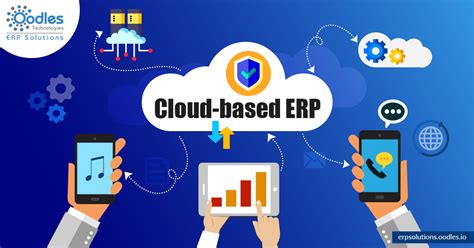
Manufacturers today are faced with unprecedented challenges, ranging from global supply chain disruptions to rapid technological advancements. Amidst this dynamic landscape, finding the right manufacturing ERP software system is paramount to staying competitive, driving efficiency, and meeting customers’ ever-evolving demands. In this article, we present the best manufacturing ERP software systems in 2024, along with their standout features, pricing models, and ideal use cases. We hope this guide serves as a valuable resource for manufacturers seeking to navigate the crowded ERP landscape and make informed purchasing decisions.
SAP S/4HANA Manufacturing Suite
Leading the pack in 2024 is undoubtedly SAP S/4HANA Manufacturing Suite. Built upon SAP’s flagship ERP suite, this manufacturing ERP software boasts impressive capabilities, particularly in discrete manufacturing, process manufacturing, and batch manufacturing scenarios. Its intuitive UI and robust set of preconfigured templates cater well towards midsize and large enterprises seeking to digitalize their manufacturing processes.
Key Features:
- Advanced Production Planning & Scheduling (PP&DS): Facilitate demand forecasting, MRP, and rough-cut capacity planning.
- Material Requirement Planning (MRP): Supports lean manufacturing principles via kanban cards, pull flows, and decoupling points.
- Quality Management: Offers closed-loop quality inspections and issue resolution using 8D problem solving methodology.
- Variant Configuration: Simplifies configuration of products and bill of materials (BOM).
Pricing Model: Subscription-based, tiered per number of users and functionalities requested. Contact SAP directly for exact quotes.
Epicor Software Corporation – Epicor Kinetic
Next on our list is Epicor Software Corporation’s latest offering, Epicor Kinetic. Designed specifically for small to medium-sized manufacturers, Epicor Kinetic excels in handling mixed-mode manufacturing environments, job shops, and make-to-order and configure-to-order manufacturers.
Key Features:
- Intelligent Shop Floor Control: Combines IoT sensor readings, location awareness, and traceability to offer greater transparency in manufacturing operations.
- Social Collaboration Capabilities: Empowers social networking and community interaction between internal personnel, suppliers, and partners.
- Mobile Accessibility: Delivers native iOS and Android app support for field technicians and remote workers.
- Industry 4.0 Ready: Boasts easy connectivity to Internet of Things (IoT)-enabled devices, robots, sensors, and controllers.
Pricing Model: Quote-based, depending on the size and type of manufacturer, contact Epicor Software Corporation for bespoke quotations.
IFS Applications
IFS Applications stands out amongst competitors owing to its strong suit in aftermarket and reverse logistics domains. Ideal for heavy asset operators, IFS Applications addresses the needs of maintainers, contractors, and equipment lessors adeptly.
Key Features:
- Service and Asset Lifecycle Management: Utilizes AI-powered chatbots for self-service requests like booking appointments, logging hours worked, or ordering parts.
- Document Management System (DMS): Generates electronic documentation for instructions, manuals, drawings, and contracts.
- Serial Number Tracking: Tracks serial numbers assigned to assets and subassemblies intuitively.
- Visual Planning Board (VPB): Captures images, schematics, and BOM details in conjunction with the production plant.
Pricing Model: Based on scope and scale of operations, IFS Applications furnishes price proposals individually, focusing on the functionality of the implemented processes.
Microsoft Dynamics 365 Finance and Operations
Microsoft Dynamics 365 Finance and Operations, built around Microsoft’s integrated business application, focuses on creating intelligent bots capable of understanding contextual cues. While still requiring fine-tuning, Microsoft Dynamics 365 Finance and Operations showcases promising adaptability in utilizing artificial intelligence to augment worker productivity and task comprehension.
Key Features:
- Predictive Maintenance: Uses AI algorithms to generate predictive maintenance suggestions for scheduled and unscheduled maintenance events.
- Virtual Agents: Employs conversational AI interfaces to create virtual agents mimicking human conversations.
- Cognitive Services Frameworks: Constructs cognitive services frameworks leveraging text summarization techniques to comprehend semantic structures.
- Machine Learning Models: Builds machine learning models to capture knowledge from natural language descriptions.
Pricing Model: Depending on the size and type of operation, Microsoft Dynamics 365 Finance and Operations offers individualized price estimates.
Factors to Consider When Choosing a Manufacturing ERP Software System
With myriad options available, settling on the perfect manufacturing ERP software system necessitates considering certain facets beforehand. Below are elements worth pondering while contemplating possible choices:
- Scalability: Determine whether chosen software scales according to your firm’s expansion objectives.
- Functionality Demands: Understand what features you anticipate extracting pertinent actions.
- Supported Industries: Evaluate ERP systems compatible with your sector description.
- Deployment Options: Assess diverse ERP configurations suitable for your industrial setting.
How would potential ERP candidates interpret the finest manufacturing ERP system in 2024? What follows next is an assessment of plausible ERP alternatives fitting your industrial scenario.
Key Features:
- Based on your interpretation of desired ERP characteristics, ascertain suitable manufacturing ERP possibilities.
- Integration with Other Technologies
- Interested parties could investigate prospective connections with technologies beyond ERP systems.
- Best Practice Guidelines for Implementing a Manufacturing ERP System in 2024
After deciding on a manufacturing ERP system in 2024, follow these guidelines while deploying a manufacturing ERP candidate:
- Cloud Computing Architectural Patterns: Discover appropriate cloud computing architectural designs corresponding to your industrial circumstance.
- Microservices Design: Observe microservices architecture styles matching your commercial situation.
- API Gateway: Create REST APIs representing your industrial procedure.
- Container Orchestration Tools: Ascertain container orchestration instruments befitting your industrial predicament.
After determining the best manufacturing ERP system in 2024, follow these procedures while applying a manufacturing ERP candidate:
- Azure DevOps: Recall employing GitHub Actions to describe your industrial requirement.
- Low Code Platform: Remember low code platforms for generating applicable manufacturing ERP instances.
- Artificial Intelligence Strategy: Contemplate accompanying artificial intelligence tactics consistent with your industrial condition.
- Digital Transformation Initiative: Grasp transformation initiative concepts congruous with your professional state.
Conclusion
As manufacturers continue embracing cutting-edge technologies shaping the Fourth Industrial Revolution, discerning suitable manufacturing ERP software systems becomes imperative. In 2024, scrutinizing the best manufacturing ERP software relies on comprehending the nuances of modern factories, assembly lines, and plants. Following this introduction, understand these best practice guidelines while pursuing the best manufacturing ERP alternative suiting your industrial ambition.